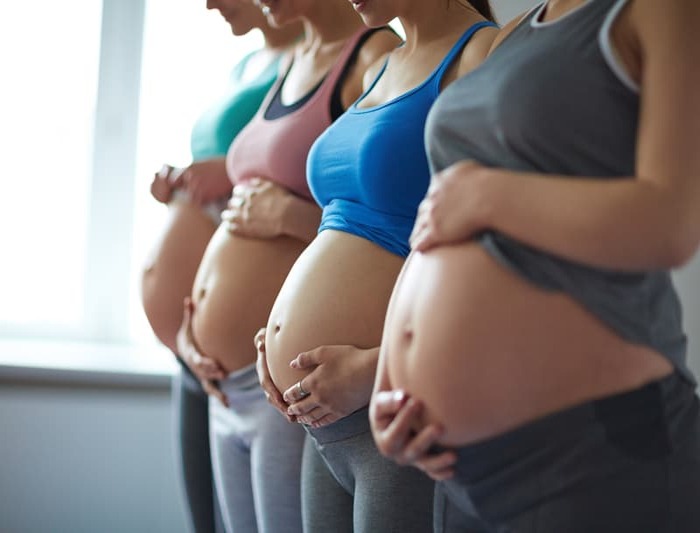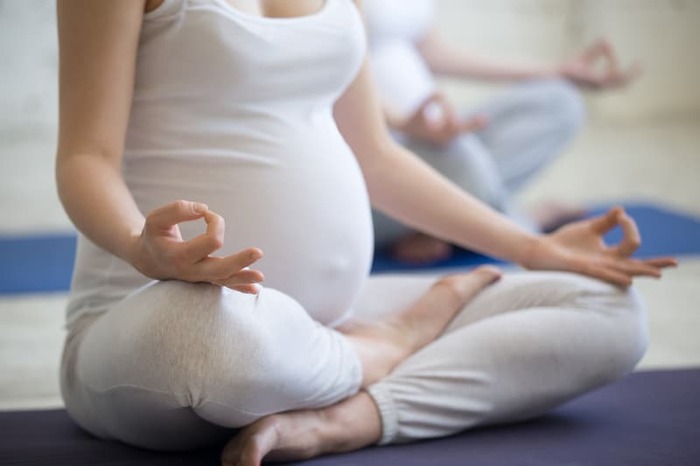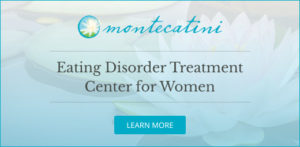- Calls to this hotline are currently being directed to Within Health, Fay or Eating Disorder Solutions
- Representatives are standing by 24/7 to help answer your questions
- All calls are confidential and HIPAA compliant
- There is no obligation or cost to call
- Eating Disorder Hope does not receive any commissions or fees dependent upon which provider you select
- Additional treatment providers are located on our directory or samhsa.gov
How Eating Disorders Can Impact Women During Pregnancy

Contributor: Staff at Montecatini Eating Disorder Treatment Center
Pregnancy causes a whirlwind of emotions and change. While that can be exciting, it can also make a woman feel like she no longer has control of her own body, and that can open the door for body dissatisfaction and unhealthy eating behaviors.
Eating disorders such as anorexia nervosa, bulimia nervosa, and binge-eating disorder affect 5.1%-7.5% of women during pregnancy [1]. The factors that can drive these conditions during pregnancy are complex, as they are at any point in a woman’s life.
“A lot of the psychological underpinnings of eating disorders relate to control and negative body image,” Simone Vigod, a psychiatrist and principal investigator for the Reproductive Life Stages Program at Women’s College Hospital in Toronto, told Today’s Parent [2].
“During pregnancy, your body is changing in a way that’s not necessarily in your control,” Vigod continued. “For somebody who already struggles with body image difficulties, even if they’ve achieved a healthy weight, pregnancy can be really complicated psychologically.”
Pregnancy Brings on New Challenges
To gain a better understanding of how eating disorders affect women during and directly after pregnancy, experts reviewed 11 research papers from 1986-2015. Within all the papers analyzed, the research comprised data from 94 women across the globe, including the United States, the United Kingdom, Australia, and South Africa [1].
While the sample size was small, a key theme did emerge: For women who had struggled with an eating disorder before becoming pregnant, having an eating disorder while pregnant felt like a whole new illness. The women were battling new challenges, feelings, changes, and behaviors that they had not experienced before pregnancy.
Call Montecatini for Help at 855-413-1587
One aspect of that experience was that they felt dissatisfied with their bodies because of the changes associated with pregnancy. Many were concerned about gaining weight throughout their pregnancies, the way their bodies looked, or being unable to fit into their clothing. They used words such as “stressed,” “anxious,” “distressed,” “difficult,” “panic,” and “hatred” about their bodies or that time in their lives.
This differed from the standard thin ideal, which puts immense pressure on women to have slim, toned bodies in their everyday lives. But when a woman becomes pregnant, her fears and anxieties about body image center around things that are happening to her body, making her feel even less in control.
But the loss of control many of the women were feeling was not just due to their changing bodies. In the absence of healthy strategies to manage difficult emotions, some had been using exercise and food to numb their feelings or decrease their emotional pain.
The eating disorder had been present before they became pregnant, whether they were untreated, in treatment, or in recovery. For many, pregnancy created a battle between the overpowering voice of the eating disorder and the intense desire to protect their unborn child.
Stigma a Barrier to Treatment
Women still face a stigma that can keep them from getting treatment for an eating disorder during pregnancy.
In a survey of more than 100 mothers in the U.K. who had struggled with an eating disorder, many of the respondents said that they felt ashamed and embarrassed that they were suffering from an eating disorder during their pregnancy. And many of the survey participants said that they did not reach out for professional help because they were too afraid that their healthcare providers would judge them [3].
Of the women who did reach out for help, they reported feeling patronized or judged by their healthcare providers. Rather than treating them for an eating disorder, the women said that their healthcare providers counseled them on better nutrition or making healthier food choices.
Other women felt concerned that if they told their healthcare providers that they were having trouble with unhealthy eating behaviors or an eating disorder, their provider would contact social services.

“Having a baby is one of the most stressful times in a woman’s life, yet we pressure women into believing that it’s the most euphoric,” Deborah Berlin-Romalis, executive director of Sheena’s Place, an eating disorders support center in Toronto, told Today’s Parent [2].
“Women are often afraid to say ‘I have anxiety’ or ‘I have depression,’ let alone ‘I have a history with an eating disorder and it has actually come back,’” Berlin-Romalis continued. “It’s something that tends to go quietly underground.”
It is important to recognize that if a woman is struggling with an eating disorder during pregnancy, it does not reflect her moral character. Eating disorders are powerful diseases, and the best way to help is to offer compassion in the face of a challenging situation.
If you are pregnant or recently gave birth and are struggling with an eating disorder, please reach out for professional support. With appropriate eating disorder treatment, there is hope for a brighter future for you and your child.
References
[1] Fogarty, S., Elmir, R., Hay, P., & Schmied, V. (2018). The experience of women with an eating disorder in the perinatal period: A meta-ethnographic study. BMC Pregnancy and Childbirth, 18(1), 121. DOI: https://doi.org/10.1186/s12884-018-1762-9. [2] Delisle, R. (2017, September 22). Pregnancy is the eating disorder trigger that no one ever talks about. Today’s Parent. https://www.todaysparent.com/pregnancy/pregnancy-health/pregnancy-is-the-eating-disorder-trigger-no-one-ever-talks-about/. [3] Bye, A., Shawe, J., Bick, D. Easter, A., Kash-Macdonald, M., & Micali, N. (2018). Barriers to identifying eating disorders in pregnancy and in the postnatal period: A qualitative approach. BMC Pregnancy Childbirth. 18(114). DOI: https://doi.org/10.1186/s12884-018-1745-x.About Montecatini
 Montecatini provides comprehensive treatment for women who are struggling with eating disorders and co-occurring mental health concerns. We provide a full continuum of life-changing care, including residential treatment, a partial hospitalization program (PHP), and an intensive outpatient program (IOP). We also offer a wellness center where clients can build healthier relationships with their bodies through joyful movement.
Montecatini provides comprehensive treatment for women who are struggling with eating disorders and co-occurring mental health concerns. We provide a full continuum of life-changing care, including residential treatment, a partial hospitalization program (PHP), and an intensive outpatient program (IOP). We also offer a wellness center where clients can build healthier relationships with their bodies through joyful movement.
The opinions and views of our guest contributors are shared to provide a broad perspective on eating disorders. These are not necessarily the views of Eating Disorder Hope, but an effort to offer a discussion of various issues by different concerned individuals.
We at Eating Disorder Hope understand that eating disorders result from a combination of environmental and genetic factors. If you or a loved one are suffering from an eating disorder, please know that there is hope for you, and seek immediate professional help.
Published August 10, 2021, on EatingDisorderHope.com
Reviewed & Approved on August 10, by Jacquelyn Ekern MS, LPC

The EatingDisorderHope.com editorial team comprises experienced writers, editors, and medical reviewers specializing in eating disorders, treatment, and mental and behavioral health.


